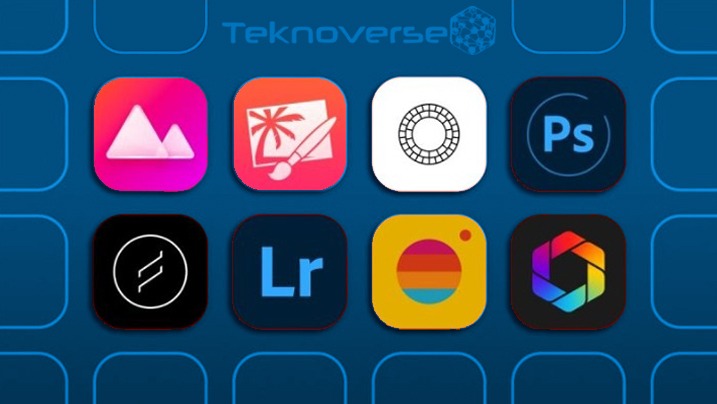
The surge in mobile app usage is undeniable, and the momentum is only growing stronger. Nearly 90% of smartphone users engage with apps, with 49% accessing an app more than 11 times daily. The shift towards mobile-centric purchasing is reshaping the customer journey, presenting a substantial opportunity for businesses.
For companies yet to embrace this trend, a mobile app can serve as a catalyst for fostering deeper connections with the ever-expanding mobile-first user base and boosting product or service sales. However, the decision to invest in an app is not to be taken lightly. Evaluating the advantages of developing a mobile app is crucial to determine whether it aligns with your business goals. Dive into this guide to explore the myriad benefits that mobile apps can offer your business.
The benefits of mobile apps
Despite the importance of optimizing your business website for mobile use, it falls short of delivering the experience offered by a dedicated app. Apps present a streamlined environment with fewer distractions, faster responsiveness for mobile users, and incorporate valuable features such as push notifications and geotargeting. If you’re uncertain about developing a mobile app for your business, delve into these benefits to assess whether the investment in time and resources is justified for creating your own app
Among their many benefits, mobile apps help businesses:
- Foster a Robust Brand Presence:
Developing a mobile app can significantly contribute to building a stronger brand for your business. Through thoughtful design and an effective communication strategy, a mobile app functions as a constant brand ambassador. It not only delivers timely services to customers but also ensures consistent fulfillment of your brand promise.
Beyond enhancing brand perception among customers, a mobile app serves as a valuable tool for understanding user behavior. Utilizing data from the app provides insights into your target audience, enabling continuous brand improvement. For instance, consistent themes in user discussions within the app’s customer forum can guide enhancements to product or service quality.
2. Enhance Customer Connectivity:
Mobile apps facilitate direct connections with customers, especially while they are on the move. Utilizing push notifications enables you to engage users with promotions, sales, and other relevant content, keeping your business at the forefront of their minds. Geotargeting features further allow interaction with customers when they are in proximity to your physical location (if applicable).
While other channels like social media, email, or websites contribute to customer engagement, a mobile app opens up an additional avenue. Given the prevalence of mobile phone usage, apps ensure that your messages reach users effectively. App notifications offer a way to engage with customers in an environment with fewer distractions and less competition compared to other channels.

- Deliver Value to Customers:
In the competitive landscape vying for shoppers’ attention, providing continuous value is paramount. The development of a mobile app becomes a key strategy to offer customers unique and valuable mobile shopping experiences. Implement features like virtual try-on augmented reality (AR) filters for your clothing line or simplify SaaS subscription management for B2B customers with a few taps. Making your products or services easily accessible to users increases the likelihood of garnering support for your business.Notably, business apps should transcend basic functionalities like a contact form or product feed. While convenience is crucial for existing customers, the app should also present a distinct advantage not available elsewhere. Evaluate your offerings to determine how an app can best serve your consumers. This might involve providing app-exclusive discounts or incorporating an artificial intelligence (AI)-powered chatbot to enhance the shopping experience. - Enhance Customer Engagement:
Users spend seven times more time in mobile apps compared to mobile browsers, making mobile apps inherently more engaging. This heightened engagement in mobile apps, especially when users willingly download them, provides brands with increased opportunities to connect with their target audience at optimal moments.Customer engagement within an app can take various forms. Features like favorite products or shopping lists offer users more control if you have a product feed. Integrating the app with a review tool provides an avenue to effortlessly collect reviews from your most engaged customers, fostering a deeper connection with your brand.
- Customize Your Marketing Channel:
Meeting the expectations of modern consumers, where nearly two-thirds anticipate brands to comprehend their needs and 52% desire personalized offers, is crucial. To cater to these expectations, a mobile app emerges as a powerful tool to personalize the customer experience. Leveraging mobile-optimized targeting tools, businesses can efficiently tailor marketing offers for each app user on a broader scale.Mobile apps open avenues for interactive personalization, incorporating features such as shopping history tracking, personalized discounts, and more. Beyond recommendation algorithms, apps can integrate augmented reality (AR) features, such as color swapping or mix-and-match clothing. Recognizing significant milestones in customers’ lives, such as anniversaries, birthdays, and holidays, becomes more accessible through a mobile app. - Enhance Customer Interactions:
Anticipated to contribute to 43.4% of all ecommerce sales in 2023, mobile ecommerce is on a significant rise. The majority of mobile ecommerce purchases are made by shoppers aged 18 to 34, who prefer interacting with brands through apps for their streamlined purchasing process, storing favorite products and payment information for quicker transactions.The mobile app environment also creates extensive cross-channel marketing possibilities, enabling shoppers to seamlessly transition from a social media ad to your app for a purchase. The quality of the app is paramount in shaping the customer experience, and a user-friendly app enhances the likelihood of positive interactions and increased conversions.

- Seize Niche Opportunities:
In the competitive landscape across diverse niches, a high-quality mobile app serves as a strategic tool to secure a larger market share within your industry. For those seeking a competitive advantage in a crowded market, incorporating innovative communication features, such as a chatbot, into your branded app can provide the differentiation needed, particularly in industries where creating dedicated apps is less common.Notably, with 85% of consumers preferring app-based shopping over browsers, the ecommerce sector can particularly benefit from the creation of a mobile app. The expectations for instant communication, reliability, and convenience are met through mobile apps, offering brands an opportunity to capitalize on their niche. - Harness Social Media Integration:
A key advantage of mobile apps is their seamless integration with various online services, including social media platforms. As most social media interactions occur on mobile devices, connecting to an app is more accessible for shoppers compared to a website. Leveraging APIs from social networks allows businesses to create a seamlessly integrated social experience within their app.Social media becomes a powerful tool for spreading the word about your business and establishing social proof, a significant selling point for mobile apps. Simplifying the social-sharing experience encourages user-generated content, and shoppers can even seek customer support through platforms like Twitter or Facebook Messenger using an in-app browser. - Enhance Customer Loyalty:
Loyalty programs stand out as effective tools for incentivizing customer loyalty, with 84% of consumers expressing a preference for companies offering such programs. Creating a mobile app provides a streamlined means to track and manage loyalty programs, replacing traditional physical punch cards.Integrating a loyalty or rewards program within the app encourages repeat orders and fosters shopper loyalty. Tangible rewards for repeat purchases, additional incentives for social media sharing, and leveraging program data to recommend relevant products contribute to building a base of return customers. - Amplify Profits:
The advantages of mobile apps extend to both businesses and consumers, culminating in an enhanced overall experience that often translates to increased profits. The improved customer experience from mobile apps often results in more efficient utilization of marketing budgets. Through heightened engagement, loyalty programs, and perceived value, businesses can potentially reduce spending on paid advertising while simultaneously increasing conversions.Mobile apps empower businesses to gain deeper insights into their customers, enabling the creation of hyper-personalized shopping experiences. Leveraging targeted tools, businesses can maximize sales with less marketing expenditure. Given that every $1 spent on enhancing the user experience can yield up to 100%, investing in a mobile app proves to be a wise decision for businesses aiming to boost profitability.
Use a content platform to help manage your mobile app
Consumers are using mobile devices to gather information about the brands they love, but they’re also using smartphones to make purchases. Chances are, a mobile app can help your business give consumers a better all-around experience while deepening customer relationships at scale.
When you’re ready to build your own mobile app, evaluate a content platform that helps you manage them. TeknoVerse lets businesses source, adapt, automate, and deliver one-on-one digital experiences with the power of AI.
Source Business Adobe








